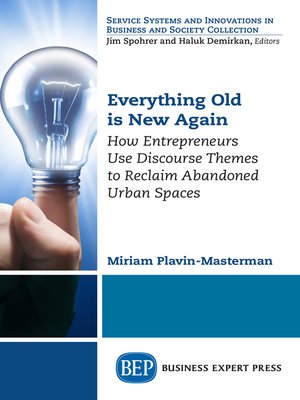Everything Old is New Again
ebook ∣ How Entrepreneurs Use Discourse Themes to Reclaim Abandoned Urban Spaces
By Miriam Plavin-Masterman

Sign up to save your library
With an OverDrive account, you can save your favorite libraries for at-a-glance information about availability. Find out more about OverDrive accounts.
Find this title in Libby, the library reading app by OverDrive.



Search for a digital library with this title
Title found at these libraries:
| Library Name | Distance |
|---|---|
| Loading... |
Recent scholarship on institutional entrepreneurship highlights the kinship between for-profit entrepreneurship and the equally transformative innovation and initiative of entrepreneurs in the non-profit, community, and policy-activist fields. This expanded exploration of entrepreneurial potential has become important in the creative destruction—or, more accurately, "creative reclamation"—of abandoned or under-used industrial relics and urban space. This book explores case studies in New York, Chicago, and Philadelphia, where community groups have deployed or are attempting to deploy symbolism and narrative to re-purpose abandoned urban infrastructure into urban public spaces. The author combines interviews, document analysis, site visits, and census tract data to determine how Friends of the Park organizations successfully navigate institutional settings to create public spaces and manage the discourse around these proposed spaces. In-depth descriptions are an essential component of the process. If a certain kind of unsuccessful discourse theme (or successful one) exhibits itself in a large portion of the potential population, it will likely show in this small sample; if the discourse exhibits itself in a very small portion, it very unlikely that it will show. Small samples, in other words, are a wide-mesh net, convenient for catching the big themes.







